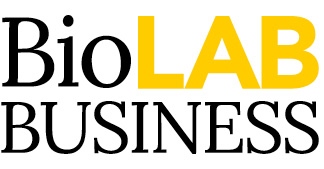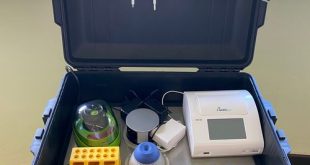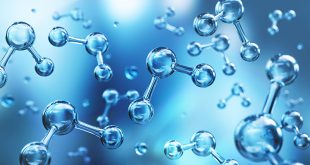When postdoctoral fellow Mahdiyeh Hasani of University of Guelph came to Canada in 2017 and began working with Professor Keith Warriner to decontaminate produce, she had no idea that in just a few years, a global pandemic would dramatically change the world – and the impact of her research. Together they worked on repurposing their food disinfection technology to clean N95 masks used in hospitals and long-term care homes.
“We realized that decontaminating masks is similar to cleaning fresh produce, in that microbes can hide in nooks and folds,” says Hasani, “and that the materials used in masks is sensitive to damage, like fruit.”
Originally designed to quickly and effectively clean fresh produce, the Clean Flow system (marketed by Clean Works Corp. in Beamsville, Ontario) was successfully adapted by Hasani to sanitize N95 respirators and is now being applied to a whole host of different surfaces, and may soon be a tool every home can use to sanitize household items. The rapid waterless decontamination unit generates antimicrobials by using a combination of natural UV light, hydrogen peroxide and ozone.
The breakthrough work earned the team Guelph University’s Innovation of the Year Award this past fall and more recently earned Hasani the Mitacs and NRC-IRAP Award for Commercialization. Mitacs is a national innovation organization that fosters growth by solving business challenges with research solutions from academic institutions.
“I never imagined that this technology would advance this far, this quickly,” says Hasani, who re-engineered the process to make it more effective and versatile. “We’re essentially replicating a reaction that occurs in nature, and optimizing it to provide solutions for both industrial and general use.”
Warriner explains, “We talk a lot about research grants and papers, but I think every researcher’s desire is that their research will make a difference. It is really good that this is helping us in the fight against COVID-19 and protecting front-line workers.”
Hasani was instrumental in reconfiguring the Clean Flow system and identifying the operating parameters to decontaminate N95 masks. The research was passed to Beamsville-based Clean Works Inc., whose team built a commercial unit within three weeks. Commercialized by Clean Works, the process was approved by Health Canada and is now installed in hospitals across the country.
 BioLab Business Magazine Together, we reach farther into the Canadian Science community
BioLab Business Magazine Together, we reach farther into the Canadian Science community





